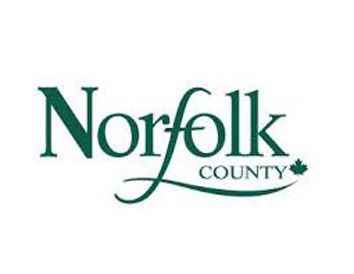
The Ontario Ombudsman has cleared Norfolk County Council of any wrong doing in three closed sessions held earlier this year.
J. Paul Dube said his review found the county met the requirements of the municipal act during meetings held March 8, April 12 and May 10, 2022. He further determined the resolutions to be discussed during the closed session were sufficiently described in the open session of council.
The review stems from a complaint Dube received concerning closed meetings held in March, April and May. The complaint alleged the closed sessions didn’t comply with procedural requirements found in the Municipal Act. The complaint alleged council failed to provide sufficient detail in its resolutions regarding its intended in-camera or closed session discussions.
During the March 8 meeting, council went into closed session to discuss four issues including a Ward 5 property update and labor relations issue.
The complainant argued that the address of the Ward 5 property to be discussed should have been made public.
Dube, however, said there is no requirement for the county to provide the specific address and doing so may have undermined the reason for going into closed session.
With respect to the labor relations issue, Dube said the county also met its requirements.
The April 12 meeting complaint involved the sale of a property in Ward 3 and the complainant said the address of the property should have been made public. But Dube again said the county is not required to make public the specific address and that the county had met its requirements.
The complaint stemming from the May 10, 2022 council meeting cited a litigation update to be discussed in closed session.
Dube found the county met its requirements.
The Ombudsman’s review was accepted as information by county council at its Dec. 20 meeting.
In a report to council, Al Meneses, the county’s CAO said closed session items are reviewed by senior leadership in consultation with the county clerk or deputy clerk, who determines if an item meets a valid closed session exemption.
The Municipal Act allows elected councils to discuss a range of issues in-camera or closed session including labor relation, litigation or legal issues involving the county as well as advice that is subject to lawyer-client privilege.
The general principle is to keep confidential issues that could competitively impact or interfere with negotiations involving people, groups or organizations and the municipality.
The review completed by the Ombudsman’s office has confirmed that the practices implemented by the County Clerk’s office and Norfolk County Council is appropriate and meets the requirements of the Municipal Act, Meneses said in his report.
Under the Municipal Act anyone can request an investigation to determine if a municipality has complied with regulations when closing a meeting to the public. The Ombudsman’s office is the default investigator for municipalities who have not appointed an investigator of their own.
The Ombudsman’s office has investigated hundreds of closed meetings since 2008. To learn more about the cases visit www.ombudsman.on.ca/digest/digest-home .
twitter.com/EXPVBall
